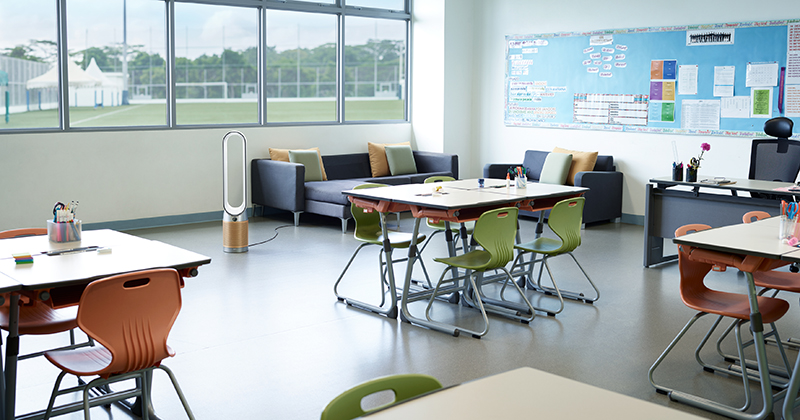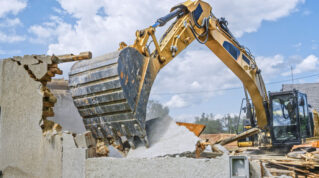Trusts and councils facing falling rolls should not sell their sites, which could instead house other public services, the boss of the Department for Education’s property arm has said.
Lara Newman, chief executive of LocatED, warned a Westminster Education Forum webinar today that government would find it “very difficult” to re-acquire sites in some areas if pupil numbers rise again.
Her warning comes despite the fact her organisation has been commissioned by the DfE to check out hundreds of sites with “underutilised land”. Schools Week revealed last week how LocatED is due to issue advice on selling off land to fund vital rebuilds.
A drop in the birth rate since the early 2010s has left primary schools struggling to fill places, with the number of reception-age children due to drop by 760,747 between 2022 and 2032.
Urban councils worst-hit by the problem have slashed admission numbers and even ordered some primaries to close in a bid to get a handle on the issue.
But Newman, whose firm is responsible for buying and developing sites for free schools on the DfE’s behalf, believes a “medium-term” solution to the problem could be “co-locating” community services in space left empty by the crisis until rolls recover.
‘Very difficult to re-buy these sites’
“We’ll be in a really difficult situation if we allow responsible bodies to sell off these school sites…only to be in a situation in 15, 20, 25 years when the population will naturally recover.
“We’ll find it very, very difficult to re-buy those sites in certain areas.”

She said working on the free school programme had showed her that “buying sites in London, Bristol, Birmingam, Leeds are all really difficult calls and they’re expensive, so we need to find a medium-term use for some of these buildings”.
London’s birth rate dropped 17 per cent between 2012 and 2021, equivalent to 23,225 fewer children. Almost 15 per cent of school places in the city are now unfilled.
Council leaders have warned that Brexit, the Covid pandemic and the cost of housing has exacerbated problems in the capital.
In Hackney – with 634 vacant reception places last year – senior councillors voted in May to carry out two mergers and close two other primaries from next September.
Newman said “there’s a real danger of London becoming childless”.
“These are really, really serious issues and we need to find a medium-term way to manage those.
“We’ve got significant demand for high-needs…places, nursery and childcare [and] some of the more commercial uses that will help schools maintain viability across the estate. I feel losing the estate is a really serious issue now.”
Schools could join ‘place pilot’ scheme
Newman added LocatED is “interested” in how it could “co-locate more services into school locations to serve the community” through the Local Government Association and Office of Government Property’s “place pilot” project.
The trial aims to “optimise investment…by identifying opportunity for co-location, disposals, relocations, land assembly and other multi-portfolio collaboration”.
The scheme will be run over 18 months in Derby, Hull, Sheffield, west Midlands and London Boroughs of Barking and Dagenham, Hackney and Newham.
“I’m really interested in whether we’ve got this catalyst moment with the surplus places in schools where we can actually start to bring in really useful services that communities need in those spaces in the interim period.”
Newman also said LocatED could explore placing recently-closed children’s centres into “schools that are half empty”.
The “death of the high street has meant the older population has lost a lot of its resource”.
This means “opening up schools to bring in services and cultural experiences that people want in their communities is a really important part of all of this”, Newman continued.
“We’re really interested in how schools can provide those services. There’s some really obvious stuff like commercial lettings space for offices – again, this plays to the underutilised buildings [issue].”









Your thoughts